Vietnam’s new glass-bottomed suspension bridge, recently certified as the longest in the world by Guinness World Records, promises to draw throngs of thrill-seeking tourists to Son La Province’s Moc Chau district.
A record-breaking structure
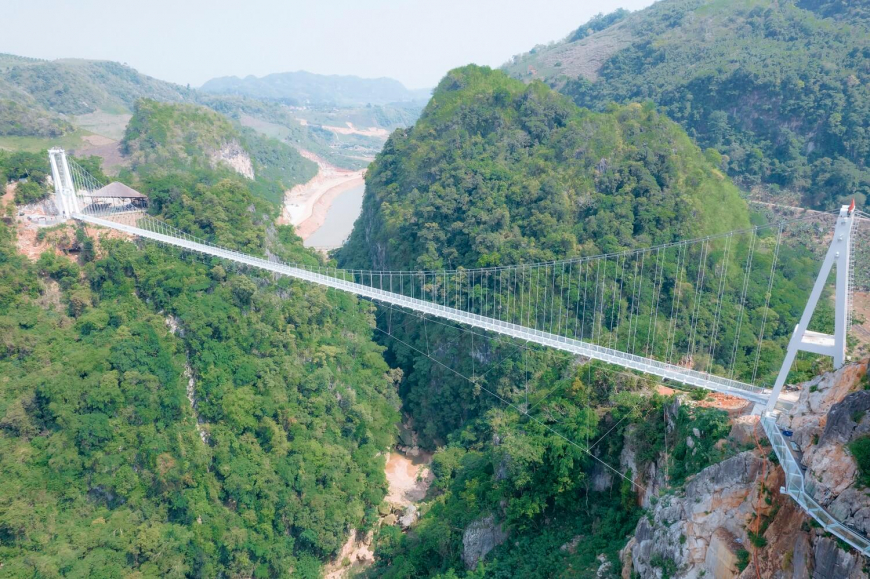
Source: Internet
We’ve all seen those hilarious viral videos of people shakily crossing glass-bottomed bridges – with some being more successful than others. Now tourists in Vietnam can also experience walking across a deep abyss themselves, at an award-winning bridge in the north.
On 28 April 2022, not long after re-opening for international tourism, Vietnam’s latest glass-bottomed walkway opened to visitors. Named Bach Long, which means ‘White Dragon’, the bridge is located in the Moc Chau district in Son La, the province bordering Laos about 200km northwest of the capital, Hanoi.
The transparent bridge is the country’s third glass bridge, after Rong May Bridge (in Lai Chau) and Love Bridge (also in Moc Chau). So, what’s special about this third bridge? It was recently named the world’s longest, beating China’s bridge in Qingyuan, Guangdong province, which previously held the Guinness World Record title.
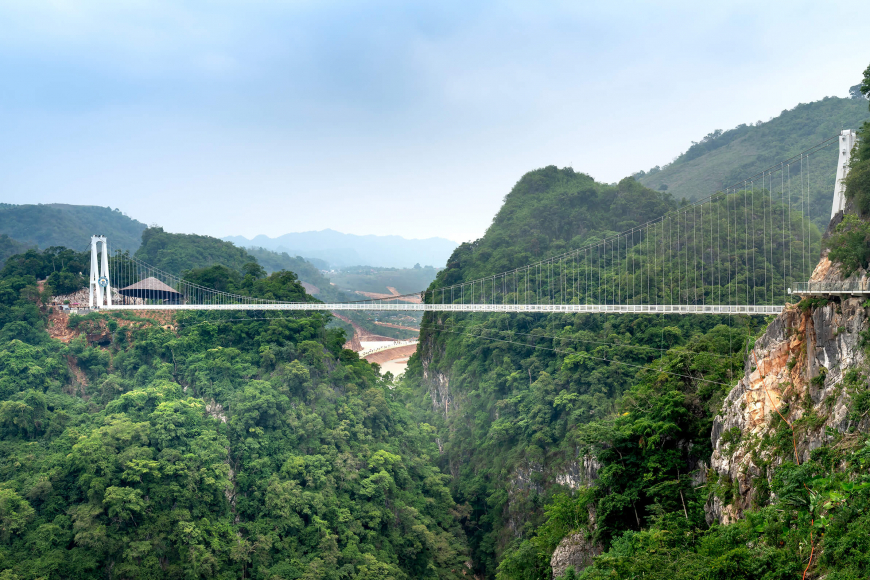
Source: Internet
Going to great lengths to attract more tourists
The bridge is 150 metres (492ft) above the forest below, with a width of 2.5 metres and a length of 633 metres (2,073ft). Some of the walkway hugs the mountainside, while 290 metres stretch across a gorge between two peaks. Made from tempered glass imported from France, it can hold the weight of 450 people at a time.
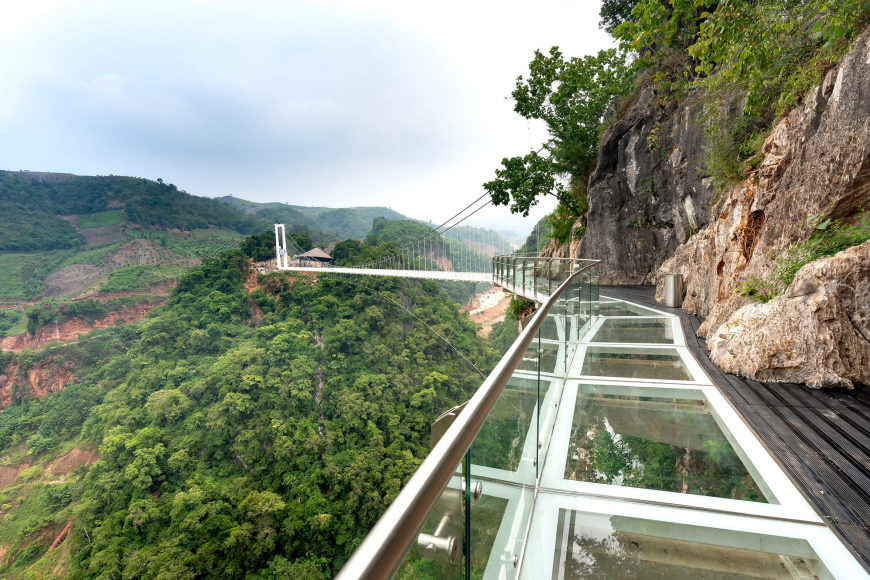
Source: Internet
Glen Pollard, a representative from Guinness World Records who attended the 28 May grand opening ceremony, believes this “spectacular” feat of engineering will indeed attract tourists. He praised "the engineering required to build that into the side of a cliff but maintain all the features of nature, the greenery, the rocks”, calling it “an amazing project”.
Nature-lovers will appreciate the panoramic views, feeling completely immersed in the surrounding nature. Braving the clear walkway takes you to the Muong Moc Cave, also called the Chim Than Cave. There’s also a nearby children’s play area, restaurant and resort, to make the trip even more worthwhile. So far, the attraction has certainly been a success. On the first day of opening, the bridge welcomed more than 4,000 people. The first three days saw a total of 15,000 visitors.
Is it safe?
Rest assured, the bridge was constructed according to rigorous international safety standards. The bridge bottom is made from three layers of reinforced glass, each 40 millimeters thick. There’s also a strict system in place to ensure the bridge is never overcrowded. Authorities are confident about the safety of the glass. To test its strength, an SUV was driven across it before opening to visitors. Everything remained intact.
So, now that you know it’s safe, do you have the guts to give it a go?
For those who know their confidence (and legs) may wobble, you’ll be pleased to know you don’t have to saunter across the transparent walkway, hands-free. There’s a small white strip on each side (the glass frame), which can be carefully edged along as you hold the rail. Take your time to take in the lush scenery…
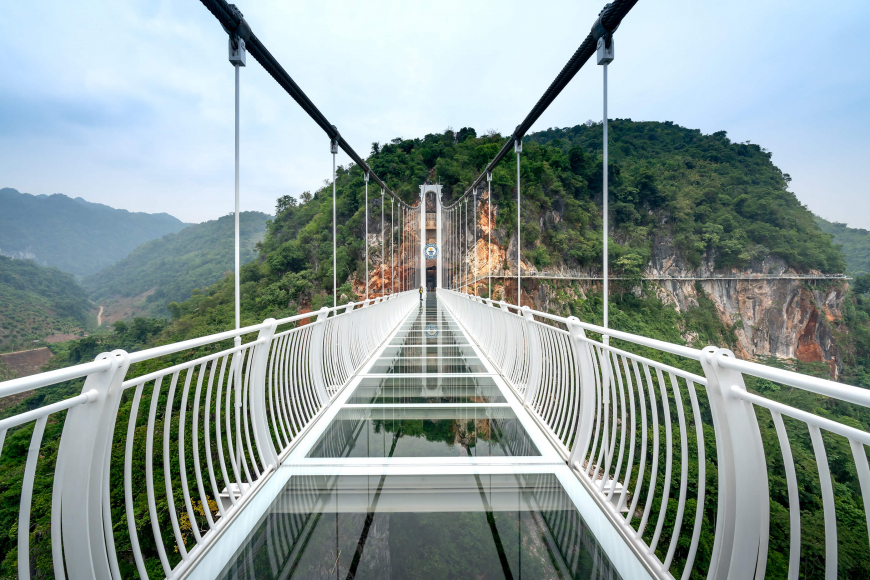
Source: Internet
Nearby attractions
Let’s face it − a glass-bottomed bridge isn’t for everyone. If you have a fear of heights, there are plenty of other reasons to visit the Moc Chau district, known for its cool climate.
It’s home to pine forests, 3,000 hectares of tea plantations, as well as the fascinating villages of hill tribes. You can hike to vantage points such as Pha Luong and Ta Xua. Visit the stunning Dai Yem waterfall. Or take pictures when the flower fields are in bloom. Between February and March is the time for the plum trees, peach trees, and orchids to bloom.
Also in March, Moc Chau hosts the annual Het Cha festival in Ang village, Dong Sang commune. This vibrant, colourful celebration of the Thai ethnic community is something special to behold.
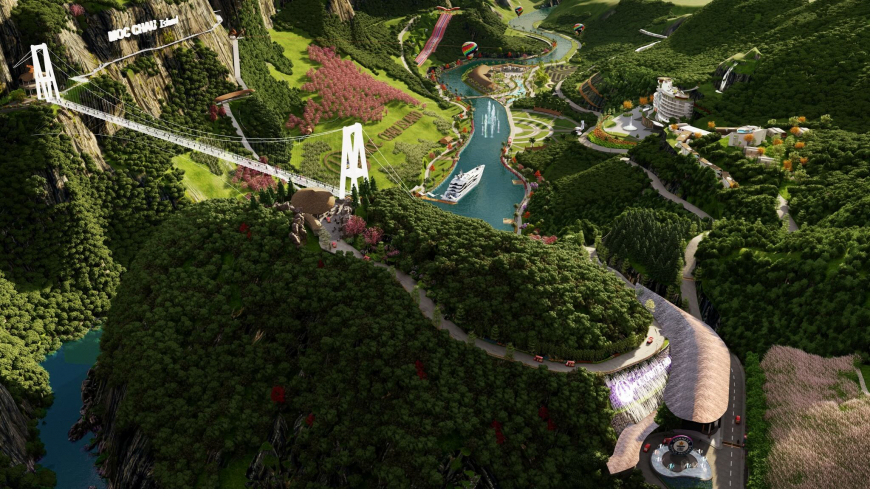
Source: Facebook - Moc Chau Island

